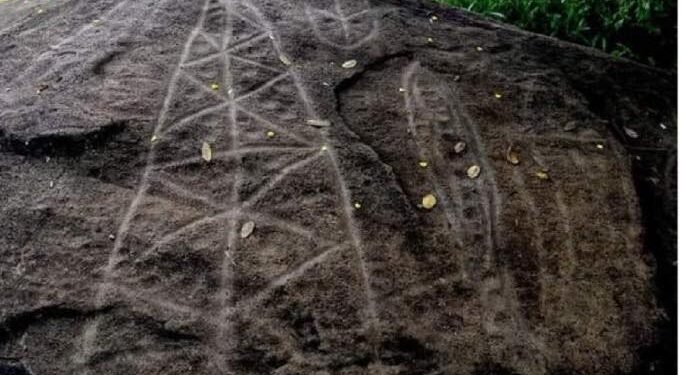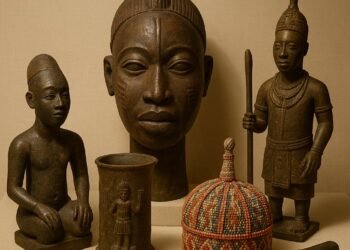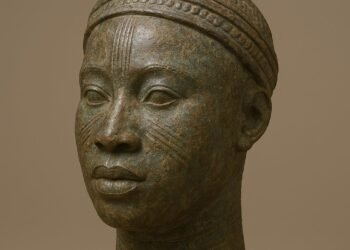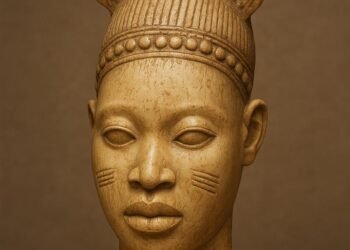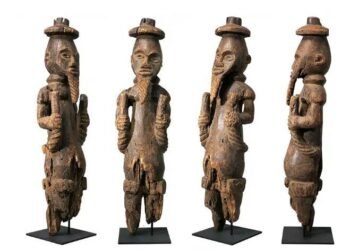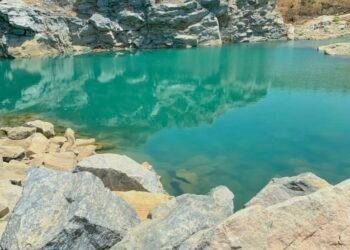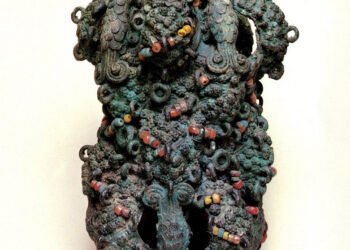Explore the Beauty and Culture of Igbara Oke
Perched on top of the scenic Ondo State hills of Nigeria, Igbara Oke is a town of colossal historical standing and very active modern life. Technically, the head office of the Ifedore Local Government Area; however, it is commonly known as “The Nodal Town.”
Its name was coined because it shares a geographical location at the tripoint frontier among the states of Osun, Ekiti, and Ondo. It’s such a favoured location that it was destined to become a commercial and cultural crossroad, a vital gateway, and a town where enduring tradition met visionary aspiration together.
Table of Contents
Igbara Oke History
The town’s history is indelibly woven with the rich Chronicles of Yoruba history. Our traditional histories have it that Prince Adeyigba, a descendant of the Oduduwa dynasty of Ile-Ife, founded Igbara-Oke in the 15th century.
Read Also: A Guide To The Amazing Facts About Idanre Hills
Their journey to their present residence was inspired by adversity, including a devastating epidemic of smallpox, which broke up the migrating population.
While one had moved south to Igbara-Odo, Prince Adeyigba led his people to higher ground; thus the name “Oke,” or “on the hill.” This elevated terrain provided natural defense and a dominant point, qualities that would be typical of the town’s tough character.
The Throne of the Olowa: A Pillar of Governance
The Olowa’s throne isn’t just some dusty old seat; it’s basically the control panel for Igbara-Oke’s entire vibe. “Olowa” actually means “Lord of Wealth,” which, let’s be real, is quite a striking title. He’s not just there for ceremonies and fancy robes; he’s at the heart of everything, calling the shots and keeping traditions alive.
He runs the show with the Ijamo, a squad of chiefs who have been steering this town for centuries. Talk about consistency. How much structure and tradition hang on his decisions is worthy of note.
This respected institution is currently embodied by His Royal Majesty, Oba (Dr.) Francis Adefarakanmi Agbede, Ilufemiloye (Ogidi III). A forward-thinking custodian of heritage, Oba Agbede skillfully champions modern development while preserving the kingdom’s profound history.
The succession itself is a masterstroke of traditional political science, rotating systematically among three founding ruling houses. This elegant system guarantees balanced, representative leadership and perpetuates a legacy of unity for all citizens.
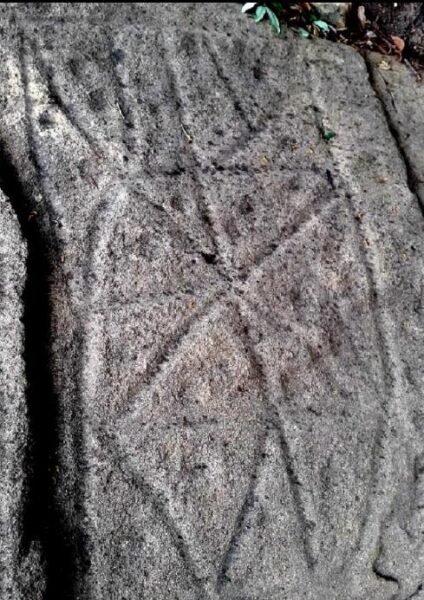
Igbara Oke’s Petroglyphs
What sets Igbara Oke apart are the ancient stories literally etched on stone. Pockmarked along its landscapes are huge, broad rock faces gouged deep with long-
standing etchings. These are not random marks but deliberate petroglyphs that have intricate grids, concentric circles, and human footprint-like or dancing stick figure-like figures.
The grooves are very deep and are very precise and smooth to touch but not subject to the wear of centuries. They have been studied by scholars, who believe them to be an advanced library of a bygone age. Some of the geometric patterns might have mapped the stars or marked important seasons for farming.
The red lines and dots etched repeatedly could have been utilized to count the passage of history or mark vital events. Other people postulate that the more symbolic carvings, such as the human figures, symbolize vital community rituals or religion, and thus it is a ritual area for ceremonies.
These rocks are Igbara Oke’s own personal, outdoor archive, witness in silence but with force to the people who first occupied this land.
A Cultural Blend of Festivals and Annual Rituals
The proper rhythm of life in Igbara-Oke is found in its astounding 24 annual festivals. This beautiful calendar is no accident; it is the people’s conscious, living commitment to preserving a unique identity.
Read Also: Ogbunike Caves: A Hidden Natural Wonder in Anambra
These festivals are the community’s cultural heartbeat, something more than mere entertainment. They are flesh-and-blood ceremonies that forcefully reinforce the social network of the community and create an intense, tangible bond between generations and the past.
The exuberant Orikadun festival, headed by the Olowa, is a potent draw, drawing natives back home from far-flung places in the world to recapture their heritage.
Other significant festivities add value to this heritage: the Odun Ogun Oye honors the iron god and the military heritage of the town, while the Ipaka festival, or Odun Oke-ile, meaningfully honors its mountain birth.
Each event here isn’t just another item on the calendar; it’s a highly engaging, collective experience that sets the standard for Igbara-Oke’s identity.
From dynamic music to energetic movement, the atmosphere buzzes with genuine, shared enthusiasm. This isn’t just participation; it’s what truly defines the Igbara-Oke spirit in action.
The Agarian Economy and Trade of Igbara Oke
The economic pillar at Igbara Oke is the rich soil. No better backbone exists for the local economy than farming, a tradition upheld by copious rains and rich soil.
Yams, cassava, and maize are the crops cultivated by farmers that form the bulk of the region’s diet, supplemented by valuable cash crops like cocoa and palm fruits.
This successful agricultural company has its lively center in the marketplace of the town, which comes alive every five days.
Not just a neighborhood shop, it is an essential regional hub in which shoppers and sellers from three neighboring states congregate to purchase, haggle, and socialize.
Read Also: Olumo Rock’s History: A Fascinating Journey Through Time
Though still the primary way of life for many, the town economy is strategically diversifying. The wave of rising education is successfully creating new professional opportunities, empowering a new generation to build careers beyond the farm, but still honoring the original roots of their society.
Igbara Oke’s Academic Culture
In Igbara Oke, the community cultivates scholars with the same dedication it gives to its crops. This deep-rooted academic ethos is the town’s most distinguished modern trait.
For a community of its size, its scholarly output is astounding, demonstrated by a legacy of over one hundred medical doctors and numerous professors and university leaders.
This is not a sudden development but a deeply embedded tradition. The town’s commitment is historic; it established the very first secondary school in the entire Ifedore Local Government Area, signaling its early priority for learning.
This centuries-long investment in education has paid its most extraordinary dividend: a global community of clever professionals. This diaspora carries the name and ethos of the town into the international community, so that Igbara Oke is known not just for what it makes, but for the clever minds it educates and sets free into the world.
Community and Progress Development Council
The progress of Igbara-Oke is not left to chance but is driven by a powerful engine of collective action: the Igbara-Oke Development Council (IDC). This body comprises dedicated indigenes from both within the town and the vast diaspora.
The IDC works in partnership with the traditional leadership to initiate, plan, and fund schemes that will benefit the community.
Their endeavors vary from upgrading educational infrastructure, facilitating modern conveniences, and fashioning economic opportunities. The council is the epitome of the developmental success of the town, founded on the principles of self-help and communal responsibility.
Read Also: Who Was Bilikisu Sugbon? Uncovering the History
Geographic Layout and Satellite Communities
The typical geographic setting of the town is on high ground, providing the landscape with an excellent view. The topography has historically provided defensive advantages and continues to affect the planning and nature of the town.
The Olowa’s palace is the constructed and religious center of the society. Igbara Oke is also the center of an interdependent network of thirteen subsidiary settlements and villages like Ajebamidele, Owode Owena, and Elemo, among others.
The subsidiary villages rely on the central town for leadership and resources and submit to the authority of the Olowa without question. However, every city has an active part in the broader social and economic order of the kingdom. This creates a dynamic, interdependent environment where cooperation and interdependence drive the region’s energy.
Tourism and Modern Aspirations
Looking to the future, Igbara Oke is preparing to have respect for its heritage, embracing new frontiers.
There is greater recognition of its vast potential for cultural tourism and eco-tourism. The numerous festivals, monuments, and hills of the town are untapped resources that can generate tourists and open up new economic prospects.
Also, the abundant academic wealth continues to be a significant export, offering a steady supply of specialists who do wonders on national and international stages.
The ambition of the community is to create an emulable model of sustainable development which capitalizes on its distinct advantages.
Balancing Progress and Heritage
Igbara Oke is a masterclass in preserving deep cultural roots and making tremendous strides. Nigerian society has centuries of tradition harmonizing with an unyielding future vision naturally.
The history of the town, from its earliest days as a hill-top community to its present role as an intellectual pioneer, exemplifies a remarkable facility for respecting the past and embracing the new.
It keeps this fragile balance intact by constantly fostering its old institutions and visionaries alike, both within and outside the country. They are building a society that clings tenaciously to its character but is positively shaping its new expansion.
Igbara Oke continues to tap into the wisdom of its heritage as it lays down on paper its next phase, making sure that tradition and innovation are not competing forces, but complementary drivers that can shape an active, prosperous society prepared for whatever the future holds.
